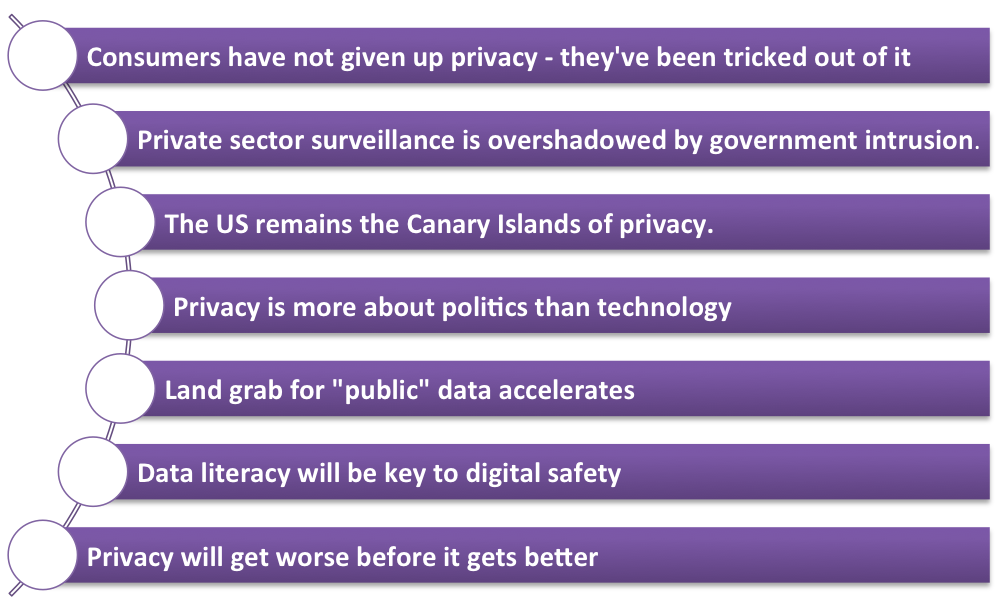Seven digital privacy trends for 2015

By Steve Wilson, Vice President and Principal Analyst, Constellation Research
Constellation Research recently launched the State of Enterprise Technology series of research reports. The series assesses the current state -- and evolution -- of technologies that Constellation considers crucial to digital transformation.
My report, Privacy Enters Adolescence, focuses on Safety and Privacy. I've identified seven trends of which you should be aware in order to protect your customer's information.
Let's take a look at these trends.
Seven Digital Safety and Privacy Trends for 2015
- Consumers have not given up privacy - they've been tricked out of it. The impression is easily formed that people just don't care about privacy anymore. Yet there is no proof that privacy is dead. In fact, a robust study of young adults has shown no major difference between them and older people on the importance of privacy.
- Private sector surveillance is overshadowed by government intrusion, but is arguably just as bad. There is nothing inevitable about private sector surveillance. Consumers are waking up to the fact that digital business models are generating unprecedented fortunes on the back of the personal data they are giving away in loyalty programs, social networks, search, cloud email, and fitness trackers. Most people remain blissfully ignorant of what's being done with all that data, but we see budding signs of resentment from consumers whose every interaction is exploited without their consent.
- The U.S. is the Canary Islands of privacy. The United States remains the only major economy without broad-based information privacy laws.
- Privacy is more about politics than technology. Privacy can be seen as a power play between individual rights and the interests of governments and businesses.
- The land grab for "public" data accelerates. Data is an immensely valuable raw material. More than data mining, Big Data is really about data refining. And unlike the stuff of traditional extraction industries, data seems inexhaustible, and the cost of extraction is near zero. Something akin to land rights for privacy may be the future.
- Data literacy will be key to digital safety. Computer literacy is one thing, but data literacy is different and less well defined so far. When we go online, we don't have the familiar social cues, so now we need to develop new ones. And we need to build up a common understanding of how data flows in the digital economy. Data literacy is more than being able to work an operating system, a device and umpteen apps: it means having meaningful mental models of what goes on in computers.
- Privacy will get worse before it gets better. Privacy is messy, even in jurisdictions where data protection rules are well entrenched. Consider the controversial new Right to Be Forgotten ruling of the European Court of Justice, which resulted in plenty of unintended consequences, and collisions with other jurisprudence, namely the United States' protection of free speech.
A snapshot of my report "Privacy Enters Adolescence"is available for download. It expands on the points above, and sets out recommendations for improving awareness of how personal data flows in the digital economy, negotiating better deals in the data-for-value bargain, and the conduct of Privacy Impact Assessments.
